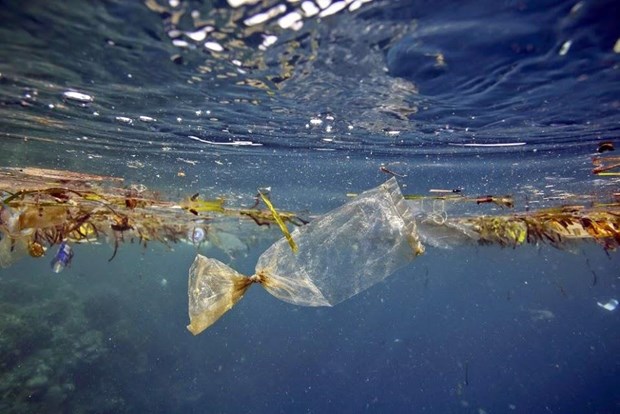Thailand generates less marine debris
The amount of marine debris generated in Thailand has dropped to 21,700-32,600 tonnes annually, after the initial success of a project to increase the reuse and recycling of materials by 25%. Plastic bags remain the largest proportion of marine debris found in the environment.
 |
| The amount of marine debris generated in Thailand has dropped to 21,700-32,600 tonnes annually (Photo: thainews.prd.go.th) |
Thailand’s Ministry of Natural Resources and the Environment’s (MNRE) Permanent Secretary Jatuporn Buruspat, has revealed a downward trend in the quantity of marine debris generated in Thailand, with the volume of marine debris washed ashore in 2018 at between 21,700-32,600 tonnes annually, which is an obvious decrease from the amount in 2016 of between 33,900-51,000 tonnes.
He said the decrease in marine debris is due to greater reuse and recycling of materials, from 15 percent to 25%.
In 2018, the Department of Marine and Coastal Resources (DMCR) conducted a study of microplastic contamination in the environment caused by the degradation of plastic debris, and its potential long-term effect on the food chain and human health. The study, conducted in 18 seaside provinces, found 53 - 2,102 pieces of microplastic per square meter of beach in the dry season, with the level of concentration dropping to 0 - 974 pieces per square meter in the rainy season.
Every year the department holds activities to celebrate the International Coastal Cleanup, on 3 September each year. This year, the department also held events on September 21 in 24 seaside provinces which helped remove 230,000 pieces of debris, weighing 10 tonnes in total, from the marine ecology.
Most of this debris was assorted plastics, with plastic bags at 22 percent, plastic bottles at 16 percent, foam food containers at 9 percent, along with glass bottles at 5 percent, and drinking straws at 5 percent.
The MNRE permanent secretary has stressed 350,081 pieces of debris have so far been collected this year, from beaches in 23 seaside provinces, weighing in total 32.83 tonnes. The largest proportion of this debris is plastic bags amounting to 11.71%, followed by foam food containers and food bags.
(Source: VNA)








